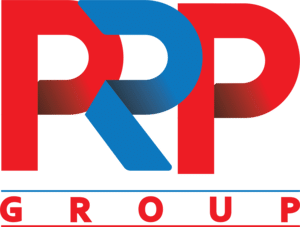Crisis Communication: The Indispensable Backbone of Modern PR

In today’s hyper-connected world, where news travels at the speed of light, and public opinion can shift instantly, crisis communication has become an indispensable component of modern public relations strategies. Warren Buffett’s famous adage, “It takes 20 years to build a reputation and five minutes to ruin it,” resonates more powerfully than ever in this digital age. A single misstep, whether a social media gaffe, a data breach, or a corporate scandal, can quickly escalate into a full-blown crisis, threatening an organization’s very existence. How an organization responds to such a crisis can determine its future, making robust crisis communication not just a desirable asset but a fundamental necessity.
Crisis communication is a specialized area within public relations that focuses on managing and mitigating risks to an organization’s reputation when it faces a threat. It’s about more than just reacting to adverse events; it’s about proactively preparing for potential crises and developing strategies to navigate them effectively. Crisis communication involves crafting timely and appropriate responses, communicating transparently with stakeholders, and ensuring that accurate information prevails over misinformation. Effective crisis communication can minimize damage and restore credibility and, in some cases, transform a crisis into an opportunity for growth and enhanced trust.
A well-defined crisis communication plan is the cornerstone of any effective crisis management strategy. This plan should outline clear protocols for identifying and responding to crises, designate spokespersons who are trained to handle media inquiries and public scrutiny and anticipate potential crisis scenarios. A delayed or vague response can significantly exacerbate a crisis, fueling speculation and eroding public trust. Conversely, transparent, honest, and prompt communication demonstrates accountability and helps control the narrative, preventing misinformation from taking root. Acknowledging concerns, expressing empathy, and taking responsibility, where appropriate, are crucial for fostering trust and reassuring stakeholders that the organization is taking the situation seriously.
Continuous monitoring of media and social media channels is essential for effective crisis management. This allows organizations to identify emerging issues quickly and respond proactively before they escalate into full-blown crises. Social media has dramatically altered the crisis landscape, accelerating the speed at which news spreads and amplifying the impact of negative publicity. A crisis that once might have taken days to unfold can now become a trending topic within hours, potentially reaching millions of people worldwide. Negative press, viral posts, and online outrage can severely damage a company’s brand image and bottom line, underscoring the need for a dedicated crisis communication team with expertise in digital PR.
Recent high-profile crises have vividly illustrated the crucial role of swift and strategic crisis communication. For example, an airline facing backlash after a passenger video of an in-flight incident went viral learned a valuable lesson about the importance of timely communication. The airline’s initial silence only intensified the crisis. However, once they communicated transparently, acknowledged their shortcomings, and outlined corrective measures, public sentiment gradually improved. Similarly, a technology company that suffered a data breach demonstrated the power of a proactive response. By immediately disclosing the breach, outlining enhanced cybersecurity measures, and offering support to affected customers, the company was able to contain the damage and begin rebuilding trust. These cases highlight that a well-executed crisis communication strategy can be the difference between weathering the storm and succumbing to it.
PR Professionals, one of India’s fastest-growing PR agencies, understands the complexities of crisis communication and is ideally positioned to assist clients in navigating these challenging situations. With extensive experience across diverse industries, it offers a strategic, multi-layered approach to crisis management. Its team of seasoned professionals develops tailored communication strategies that address the specific challenges faced by each client.
PR Professionals excels in real-time crisis monitoring, utilizing advanced tools to track potential threats before they escalate. It proactively engages with journalists and influencers to ensure accurate and balanced reporting. Its crisis messaging and response strategies are carefully crafted to convey transparency, accountability, and empathy. Furthermore, it implements reputation rebuilding initiatives focusing on long-term strategy to restore and enhance brand credibility.
Beyond immediate crisis response, PR Professionals emphasizes proactive crisis preparedness. It works closely with clients to conduct comprehensive risk assessments, provide media training sessions for designated spokespersons, and conduct crisis simulation exercises. The proactive approach ensures that organizations are well-equipped to handle potential challenges before they erupt into full-blown crises, minimizing the impact of adverse events.
Crisis communication is not just about managing damage; it’s about proactive reputation management. In a world where public perception can significantly impact a business’s success, a robust crisis communication strategy is not just advisable—it’s indispensable. It stands at the forefront of this crucial PR function, empowering businesses to navigate challenges, protect their reputations, and emerge stronger from crises. In today’s volatile environment, crisis communication is not just a reactive measure but a proactive investment in long-term success.
